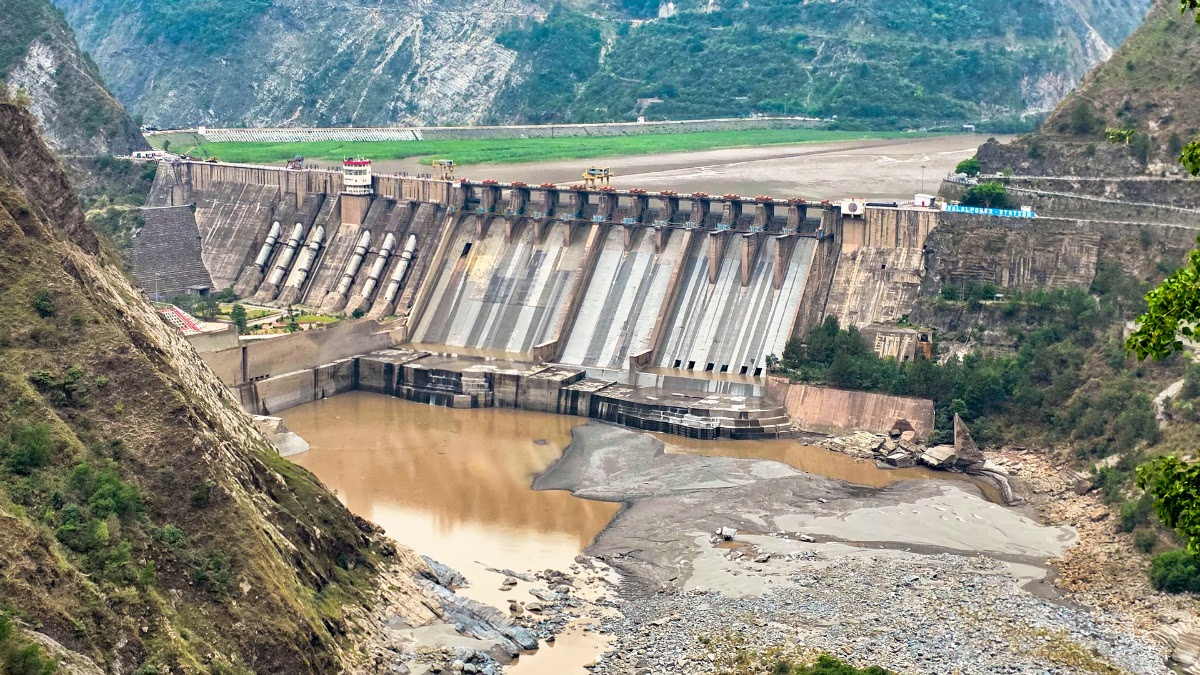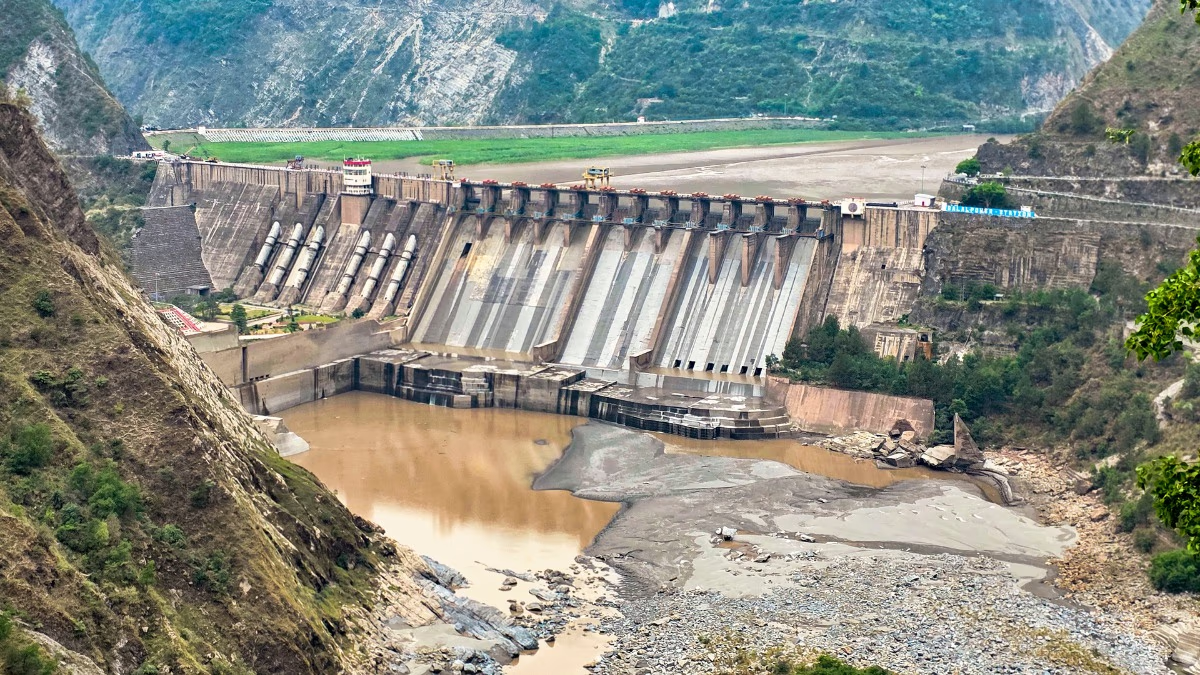In a decisive step, India has shut the gates of the Baglihar and Salal dams on the Chenab River in Jammu and Kashmir, effectively stopping the water flow into Pakistan—a move dubbed 'Round Two of the Water Strike.' As a result, the Chenab River, which previously flowed toward Pakistan, has dried up. India's stance remains firm: 'If blood flows on Indian soil, not a drop of water will flow to Pakistan.' Despite Pakistan's appeal to the United Nations and threats of nuclear action, India considers these to be mere bluffs. Our team on Ground Zero has sought to understand the current situation. Let's delve into the happenings on the ground.
Report from Ground Zero: The Drying of Chenab River
India has temporarily suspended the Indus Waters Treaty of 1960 and issued a stern message to Pakistan by blocking the Chenab River's flow from the Baglihar and Salal dams. The water level of Chenab, also known by its ancient name Chandrabhaga in Jammu's Akhnoor, has significantly decreased. What were once flowing waters are now stone-strewn expanses.
Water and Blood Cannot Flow Together
India has unequivocally stated that it can respond to Pakistan with both military and non-military options. As Prime Minister Narendra Modi emphasized, "Water and blood cannot flow together."
India's Firm Stance on Western Rivers
India has sent a strong message to Pakistan, declaring its capability to halt the flow of the three western rivers—Chenab, Jhelum, and Indus—should Pakistan not cease its misdeeds. The proof of this stance was seen when the water was blocked on Sunday, causing panic in Pakistan.
Also Read: India’s Strength: Germany and France’s Big Decision – No Use of Pakistani Airspace!
Stringent Actions After the Pahalgam Attack
Following the brutal terrorist attack in Pahalgam, the Indian government took stringent actions. The Cabinet Committee on Security, chaired by Prime Minister Narendra Modi, convened, leading to tough decisions, one of which was the suspension of the 1960 Indus Waters Treaty.
India's Clear Message: Military and Non-Military Options Open
By suspending the 1960 water treaty, India has made it clear that if Pakistan continues its provocations, India will retaliate firmly. We have both non-military and military options at our disposal. Currently, the non-military option is being exercised. Under the Indus Waters Treaty, control over three western rivers—Chenab, Jhelum, and Indus—was accorded to Pakistan, but this suspension sends a stern message.
Also Read: 'Always with Pakistan in Tough Times…' China Assures Shahbaz of Aid: Enemies of India Unite
Pakistan's Panic and India's Response
Pakistan is agitated while India demonstrates the potential consequences of halting water flow.




